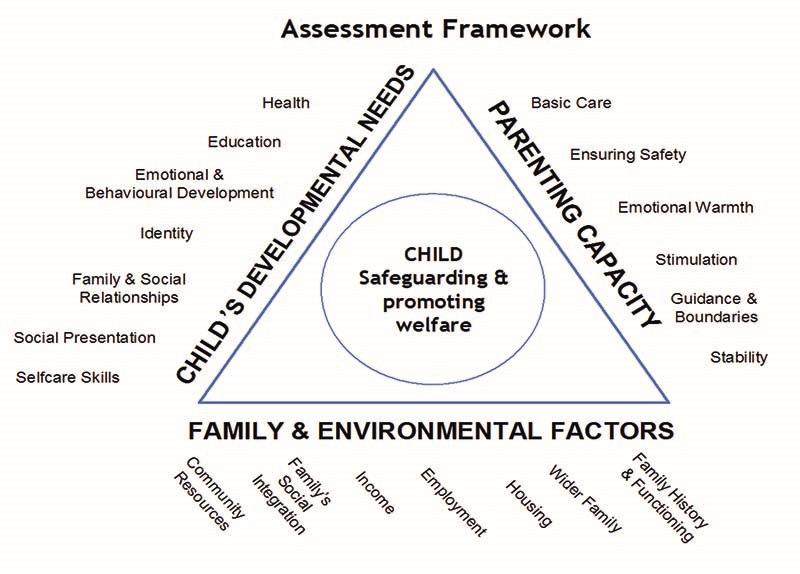The 2015 Department for Education (DfE) review of effective PSHE practice recommended that PSHE should: “Ensure coherence, teamwork – including involvement from other agencies (where appropriate), parents, governors and members of the wider community.”
The majority of teachers understand the importance of empowering children to have better personal, social and emotional, and relationship skills, because this has a direct and positive impact on their learning capacity, but how do you ensure parents and carers also subscribe to this?
The most effective PSHE programmes commit to a whole-school approach, which extends beyond the school gates. PSHE provides an opportunity to enhance skills such as perseverance, conflict resolution, emotional intelligence, self-management, self-respect, teamwork, time and stress-management – important life-skills that simply aren’t covered developmentally by other aspects of the curriculum. The support of the senior leadership team in delivering this message to parents/carers is crucial.
Child safeguarding & promoting welfare
One of the most crucial things to remember about PSHE is that it teaches children about keeping safe. The assessment framework for safeguarding and promoting child welfare (Statutory Guidance on Working Together to Safeguard Children, DfE, March 2013) forms a core part of effective PSHE. There are three elements, with the child at the centre – child development, parenting capacity, and family and environmental factors (see graph).

PSHE Assessment Framework: From Statutory Guidance on Working Together to Safeguard Children (p20), DfE, March 2013
PSHE helps to promote child wellbeing, helping to keep children safe from harm by encouraging them to make informed choices. With the right learning provision and tools, these subjects can be taught in a safe environment and provide solid foundations to children of all ages. This enables and empowers children to understand what is right and wrong in any complicated situations they face, now, and in the future. Ultimately, PSHE helps ensure that children are safe, happy and healthy, by allowing them to understand when they may not be.
How can this be communicated to parents?
Most parents and carers also understand the importance of their children developing personal and interpersonal skills as well as academic success. However, sometimes, if not furnished with a clear and comprehensive picture of the school’s aims and programme for PSHE, it may be seen as intrusive, or tackling issues they don’t want their child to learn about, such as sex and relationships education (SRE).
It is therefore very important to establish clear lines of communication – especially in primary schools where parents may have concerns around age-appropriateness of some of the aspects of PSHE.
Effective PSHE should start early and take a developmental approach; relevant to pupils depending on their age and maturity. As part of this, schools would be wise to ensure that parents and carers understand the personal skills development that can be provided by PSHE.
This can be particularly challenging when teaching SRE. Sharing your SRE policy and PSHE curriculum overview on the school website, as well as making copies readily available to parents/carers who request them, including guidance on the parental right to withdraw their children, is a good starting point – as is the willingness to be transparent about what will happen if a child makes a disclosure while at school.
Furthermore, schools are well advised to communicate to parents/carers what is going to happen in the lessons. Do they understand what will be taught and how? Considerations for safeguarding and promoting the welfare of the child are paramount, forming an essential element of PSHE learning, and should be clearly communicated to parents/carers.
Statutory reviews can instil confidence in this type of learning and are often worth sharing with parents and carers. For example, in the 2012 DfE publication, The Impact of Pupil Behaviour and Wellbeing on Educational Outcomes (Gutman & Vorhaus), it states: “A review of the impact of pupil behaviour and wellbeing on educational outcomes, as rated by their parents, found that pupils with greater emotional, behavioural, social, and school wellbeing had, on average, higher attainment and were more engaged with their schooling, even after controlling for variables such as deprivation.”
A consultative approach
Communication mechanisms about effective PSHE should be two-way. If parents and carers feel they are being dictated to about what is being taught at school, especially on issues that cover personal wellbeing, they will be less inclined to offer feedback. As well as opening up formal lines of communication, hold open consultations. Also consider offering taster sessions, so that parents/carers can come in and see the materials, or take part in a mock lesson. Where appropriate, consider having parents feedback through community representatives. This role could be undertaken by a parent-governor. We have witnessed this working well where there is a known language or cultural barrier preventing the school from directly communicating the delivery of PSHE.
Top tips for effective teacher-parent cooperation
- Ensure parents and carers understand and trust in the goals and aims of the scheme of work.
- Ensure parents and carers are given the opportunity to open a dialogue with the school, or a school representative.
- Ensure a child-centred approach at all times.
- Provide opportunities for further involvement, such as participating in policy reviews, and attending open days or evenings.
It goes without saying that fostering good relationships with parents and carers helps to create a collaborative environment. For PSHE to be effective and offer long-term benefits for pupils its values must be demonstrated both inside and outside of the school environment
- Jan Lever, a former teacher, local authority advisor and psychotherapist, is creator and director of Jigsaw PSHE, a PSHE Association-quality assured resource for primary schools. Visit www.jigsawpshe.com
Further information
- Ten principles of effective PSHE education, PSHE Association: http://bit.ly/2bl8PTI
- Statutory Guidance on Working Together to Safeguard Children, DfE, March 2013: http://bit.ly/2bDY3sj
- Personal, Social, Health and Economic (PSHE) Education: A review of impact and effective practice, DfE, March 2015: http://bit.ly/2bYWjcu
- The Impact of Pupil Behaviour and Wellbeing on Educational Outcomes, DfE, November 2012 (Gutman & Vorhaus): http://bit.ly/2bTgWHL
